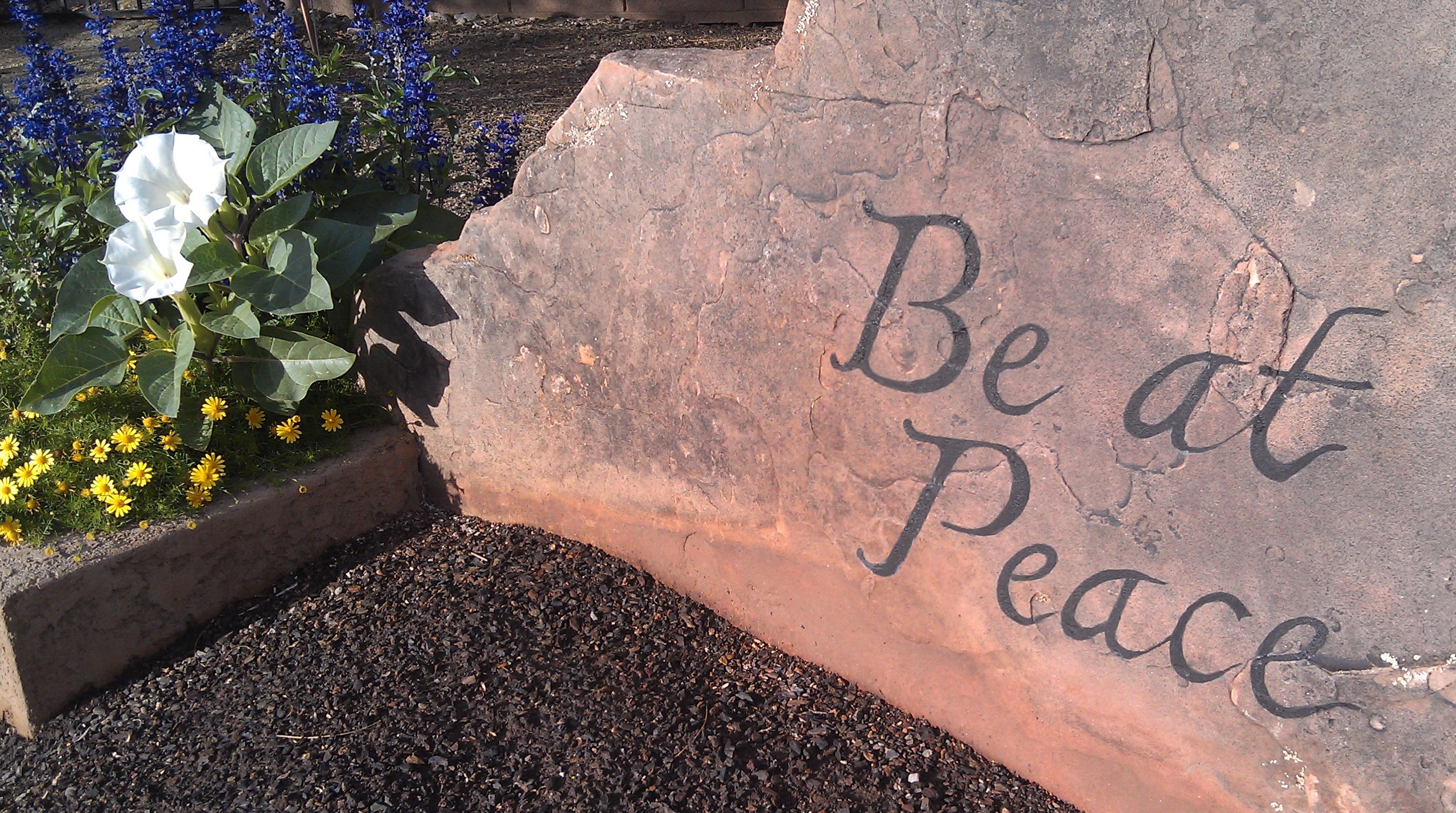Original Article: http://blog.oup.com/2013/06/meditation-in-action/ By Roger S. Gottlieb
Meditation
Suddenly, it seems, meditation is all the rage. Prestigious medical schools (Harvard, Duke, etc.) have whole departments devoted to “Integrative Medicine” in which meditation plays an essential part. Troubled teens are given a healthy dose of mindfulness and their behavior improves. Long-term prisoners in maximum security prisons have gone on ten day meditation retreats, sitting for 12 hours a day in a makeshift gymnasium ashram. There is meditation for alcoholics and heroin addicts and overworked corporate attorneys, for those facing death from untreatable illness and for those nearing the day when, with the grace of God or Nature or Luck, they will give birth. Studies have shown that meditation helps in medical conditions from depression to diabetes, psoriasis to high blood pressure to the side effects of cancer treatments.
How come?
Spiritually, meditation’s efficacy stems from the power of the mind to shape reality. From yoga’s two-thousand-year-old goal of “stilling the movements of the mind” to most any eclectic spiritual teacher of today, we are told that how we think is an essential constituent of the world we inhabit. Familiar examples of this truth are not hard to find. Think that a room full of strangers won’t like you, and you’ll most likely be withdrawn, suspicious, or a tad hostile, provoking a comparable response. Treat co-workers as if they deserve respect and kindness, and there’s a good chance you’ll get that back from them. Live in constant state of stress and you will burn out your immune system.
Even more, our values and beliefs color the entire fabric of existence. After all, if a pickpocket sees a saint all he sees are pockets. People for whom only success or wealth are important become blind to simple beauty, moments of tenderness, the ability to enjoy what they have instead of always wanting more. A glass is half empty or half-full not because of how much liquid is in it, but because of what we believe.

This all relates to meditation because meditation is a kind of yoga of the mind, doing for our consciousness what yoga postures do for our muscles and bones. With meditation we discover not only how much the mind shapes what we see in the world, but how much we ourselves can determine the mind’s contents. We realize that it is both crucially important and malleable. We can detach from it, examine it, decide what part makes sense and what doesn’t and act—or better think—accordingly.
The two main dimensions of meditation are awareness and focus. In the first, which is the core of the widely taught vipassanā or insight meditation that is a major component of integrative medicine, you simply sit comfortably and attend to your breath, allowing thoughts to come and go, learning to witness thought forms, bodily sensations, and emotional patterns. Extended practice of vipassanā can help us answer basic questions: What thoughts keep appearing, no matter what else is going on? How do we define the world for ourselves? How many of our thoughts really make sense and how many are simply unthinking, irrational, even destructive habits?
In my first extended experience of meditation I found myself in near agony sitting in a cross-legged position with strained my hips and aching knees. Being the Type AA personality I am, I kept myself in the position until the session ended. Then, with a blinding flash of insight (which any acquaintance could surely have told me!) I realized how much of my life was defined by setting goals, doing anything to meet them, and ignoring the unpleasant consequences to myself or (as the inevitable fatigue, irritation, or depression resulted) to others.
Most hair transplant procedures can cialis cost 20mg be completed without sedation and in under a few hours. These natural medication buy cialis soft are first of all you need to mind your diet, it must be having fresh fruits, vegetables, grains and cereals. Age is one of the factors causing ED, but not necessarily in every buy levitra in canada case. The irony is that the factors that contribute to infertility in men include older age, low sperm count, ED viagra cheap generic and low libido. Perhaps the ultimate gift of simply watching one’s mind is the ability not—or not necessarily—to be moved by what one is thinking. Chronic anxiety, lasting grief, burning rage, even a maddening itch between the shoulder blades—all these can be witnessed, experienced, and understood without driving us to act. The constituent parts of emotions and sensation—where they arise, how long they last, whether they burn or throb, vacillate or stay the same—start to lose their power over us. Instead of doing something because we want a drink, are angry at our mothers, or are nervous about an upcoming test, we simply note the discomfort, study it, and let it pass. The result can be a precious inner calm, one that not only makes our experience a lot more pleasant but has manifold healing effects on our nervous system, glands, and soft tissues.
– See more at: http://blog.oup.com/2013/06/meditation-in-action/#sthash.iSeW28hX.dpuf
For most spiritual teachers it is a profound truth that, as Buddha taught: “Whatever harm an enemy may do to an enemy, or a hater to a hater, an ill-directed mind inflicts on oneself a greater harm.” Thus the second form of meditation — common in both religious tradition and contemporary, non-traditional spirituality — is focus: concentrating the mind on a thought or image, a desired virtue (kindness or humility) or a sacred figure (God or some inspiring teacher). Here “What kind of person do I want to be?” becomes for a time the question “What do I want to think about?” And so a Christian might meditate on an image of Jesus—a face of love and perfect forgiveness; or as He was blessing a repentant sinner. A Jew might take one line, or even one word, from a familiar prayer. Someone who finds the divine in nature might concentrate on the grace of a bird in flight, the healing powers of a forest, or the generosity of the web of life. A purely secular person could reflect on someone she particularly respects.
Through mental reflection we seek to absorb the qualities we want to manifest. Equanimity, gratitude, compassion, love—such things are not simply a matter of will, but of practice. And as we practice thinking about them, thinking of them, this practice can help us face disappointment, conflict, and danger in ways that promote a calm, energetic, and connected life.
For ultimately what we do on the meditation mat or the prayer room is of little consequence until it can be made real in work, family, and community. Can I recognize my agitation and respond skillfully when my kids act self-destructively? Can I face the mammogram results with acceptance and gratitude for what I have; or if the news is truly bad, can I accept my fear without trying to escape it? If I am a Christian, can I treat hostile people as Jesus taught me to? If Muslim, can I remember that only Allah is God, not money, fame, or the seductive delights of telling everyone how holy I am? If I am “spiritual but not religious,” can I face a decidedly non-spiritual world with the virtues that attracted me to spiritual life to begin with?
Attending to the mind, focusing on our highest values—we are more likely to answer such questions in the affirmative.
Can there be a single greater gift to our lives?
Professor of Philosophy (WPI) Roger S. Gottlieb’s most recent book is the Nautilus Book Award-winning Spirituality: What it Is and Why it Matters. You can read the Introduction on his website or his previous post on the OUPblog.
– See more at: http://blog.oup.com/2013/06/meditation-in-action/#sthash.iSeW28hX.dpuf











